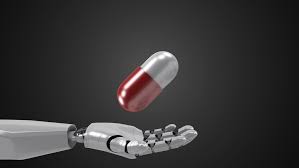
Breaking News
 The Gaza Gambit: Trump's USD1 And Asset Tokens Will Provide Cradle-To-Grave Financial System
The Gaza Gambit: Trump's USD1 And Asset Tokens Will Provide Cradle-To-Grave Financial System
 Huh? Trump Family Is Jockeying To Replace The Dollar Globally As Their Wealth Soars
Huh? Trump Family Is Jockeying To Replace The Dollar Globally As Their Wealth Soars
 The Gaza Plan's 'Sick Kind of Detachment' and its Dangers for America
The Gaza Plan's 'Sick Kind of Detachment' and its Dangers for America
 Project Artichoke: 70 Years Ago, CIA Discussed Hiding Mind-Control Drugs in Vaccines
Project Artichoke: 70 Years Ago, CIA Discussed Hiding Mind-Control Drugs in Vaccines
Top Tech News
 New Spray-on Powder Instantly Seals Life-Threatening Wounds in Battle or During Disasters
New Spray-on Powder Instantly Seals Life-Threatening Wounds in Battle or During Disasters
 AI-enhanced stethoscope excels at listening to our hearts
AI-enhanced stethoscope excels at listening to our hearts
 Flame-treated sunscreen keeps the zinc but cuts the smeary white look
Flame-treated sunscreen keeps the zinc but cuts the smeary white look
 Display hub adds three more screens powered through single USB port
Display hub adds three more screens powered through single USB port
 We Finally Know How Fast The Tesla Semi Will Charge: Very, Very Fast
We Finally Know How Fast The Tesla Semi Will Charge: Very, Very Fast
 Drone-launching underwater drone hitches a ride on ship and sub hulls
Drone-launching underwater drone hitches a ride on ship and sub hulls
 Humanoid Robots Get "Brains" As Dual-Use Fears Mount
Humanoid Robots Get "Brains" As Dual-Use Fears Mount
 SpaceX Authorized to Increase High Speed Internet Download Speeds 5X Through 2026
SpaceX Authorized to Increase High Speed Internet Download Speeds 5X Through 2026
 Space AI is the Key to the Technological Singularity
Space AI is the Key to the Technological Singularity
 Velocitor X-1 eVTOL could be beating the traffic in just a year
Velocitor X-1 eVTOL could be beating the traffic in just a year
AI system discovers powerful new antibiotic to tackle superbugs

Now, an artificial intelligence model has identified a powerful new antibiotic called halicin, which cleared infections of most superbugs in mouse tests.
Ever since antibiotics were invented in the early 20th century, we've been locked in an arms race with bacteria. Antibiotics work for a while, but eventually the bugs evolve resistance to those in wide use. Scientists develop new ones, so bacteria continue to evolve, and so on. The problem is, we're starting to lose the battle as the bugs outpace us and fewer new drugs are in the pipeline.
Drug discovery is an arduous task, requiring huge amounts of data to be crunched – and that's just the kind of job that AI excels at.



